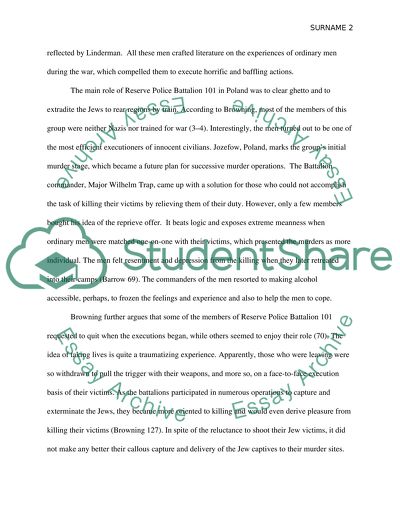Cite this document
(“World War 2 History Essay Example | Topics and Well Written Essays - 1250 words”, n.d.)
Retrieved from https://studentshare.org/history/1472310-world-war
Retrieved from https://studentshare.org/history/1472310-world-war
(World War 2 History Essay Example | Topics and Well Written Essays - 1250 Words)
https://studentshare.org/history/1472310-world-war.
https://studentshare.org/history/1472310-world-war.
“World War 2 History Essay Example | Topics and Well Written Essays - 1250 Words”, n.d. https://studentshare.org/history/1472310-world-war.


